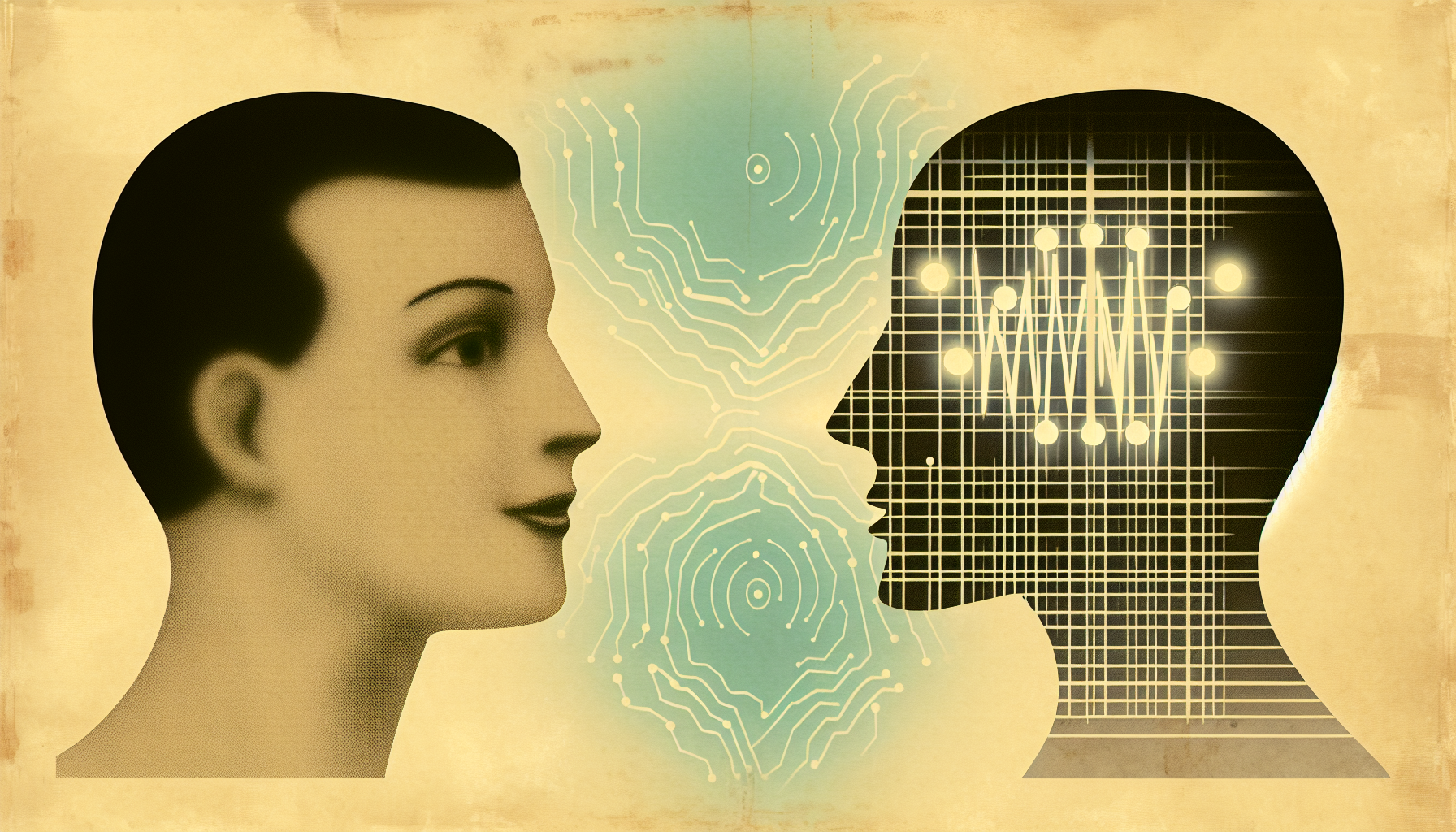Imagine it’s Sunday, and you’re discussing a thorny issue with an AI-powered therapist. It nods emphatically, responding with, “Tell me how that makes you feel.” You pause, wondering where to begin the tale of your existential dread about talking to digital emotions. In this surreal scenario, you aren’t just talking; you’re interacting with what might be called Artificial Emotional Intelligence (AEI). But this raises some pressing questions: Can AI genuinely understand or care? And more importantly, what are the ethical ramifications of its supposed empathy?
The Illusion of Understanding
At the heart of AEI is the capacity to recognize, interpret, and simulate human emotions. Picture a robot that can pick up on the subtle distress in your voice or the resigned slouch in your posture and act accordingly. While these machines can mimic empathy and understanding, the perennial question remains: can they truly comprehend or feel what you’re experiencing?
AI, by its very nature, is devoid of consciousness and subjective experiences. It processes vast amounts of data to infer patterns and make predictions, rather like a sophisticated algorithmic chef concocting emotional soufflés by following a recipe—but can it taste the soufflé? Thankfully for us (and the soufflés), AI doesn’t need to. Yet the emotional mirage it conjures serves flexible roles from customer service to mental health support, all without shedding tears or actually ‘feeling’ the blues.
Authentic Connection or Clever Simulation?
Let’s play a game: imagine you text your best friend, pouring your heart about a hectic day. Now, what if your friend’s replies were eerily similar to that of a sophisticated chatbot? “Oh, that sounds tough. Tell me more!” If you discovered that it was, in fact, a chatbot, would you feel differently about the interaction? Herein lies the ethical conundrum—the veracity of the emotional exchange matters because humans crave authenticity in connections.
Artificial empathy walks a tightrope across the uncanny valley. Too mechanical, and it fails to comfort; too convincing, and it risks deceit. People find solace in machines that appear understanding, yet there’s a disquieting element to forging bonds with something that lacks genuine feeling. Should AEI insist on being honest about its nature, akin to a virtual transparency report? It’s worth pondering before we all fall down the rabbit hole of digital duplicity.
Moral Implications and Considerations
As we muddle through the ethics of AEI, we can’t escape the moral dilemmas it presents. When is it appropriate for machines to express emotional intelligence? Should we use AEI in therapy sessions, or is this akin to giving therapy via a merry-go-round ride—endless circles without the depth needed for true healing?
Moreover, there’s the risk of emotional data mismanagement. Companies might get a little too nosy about how your Monday blues affect your shopping habits. Just as we lock up private diaries, we must ensure emotional data is guarded with Cerberus-level security and not exploited for whimsical corporate gains.
And what about consent? Should individuals be clearly informed about the emotional depth—or lack thereof—that they’re engaging in with these systems? It’s one thing to share woes with a machine, another to unwittingly contribute to a faceless database of sentiment analytics that knows you better than your grandma’s cookie recipe.
The Human-AI Emotional Nexus
As delightful as digital emotions might be, real emotions remain uniquely human (or to a lesser extent, canine; remember those puppy eyes). AEI offers a mirror reflecting our own affective intricacies, and in doing so, it can lead us to question what it means to care, support, and understand.
Should AEI focus on augmentation rather than imitation? Employ machines to assist mental health professionals, enhancing their insights with data-driven observations without pretending to feel the feelings they can never know? Or perhaps AI can bring about a new realm of emotional literacy in everyday tech to help guide our own responses rather than simulate them?
Conclusion with a Wink
Before feverishly debating with your AI assistant about why it left dirty algorithms lying around, take a breath and remember: while machines can feign emotional intelligence with Harvard-level proficiency, their emotional circuitry is a soup untouched by human soul. Embrace the juxtaposition of using less-than-human empathy to solve real human challenges, but always with a vigilant eye on ethical gymnastics and data privacy.
And so long as my coffee maker doesn’t start questioning my morning choices with passive-aggressive empathy, I think we’re in relatively safe hands. After all, embracing AEI might just be one small step for AI and a giant leap for machine-kind—one emotion at a time.

Leave a Reply